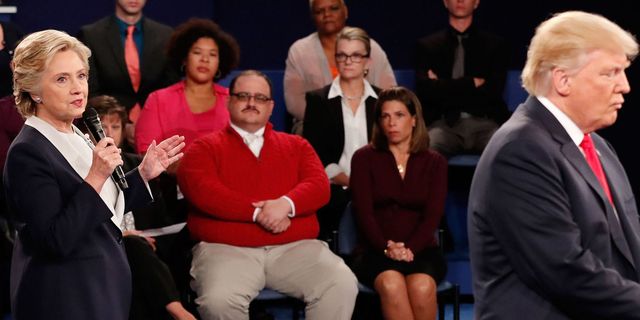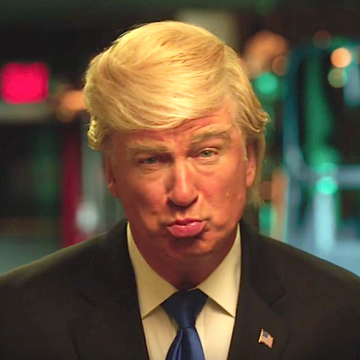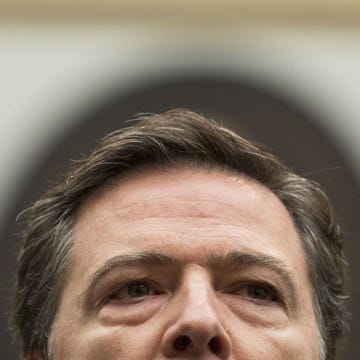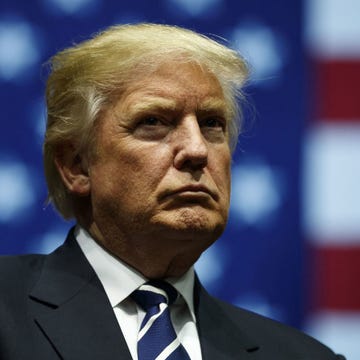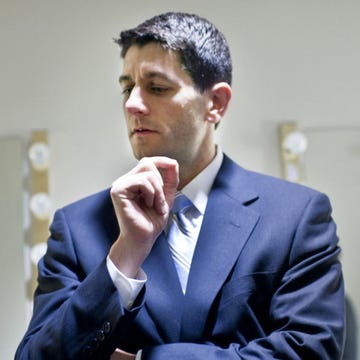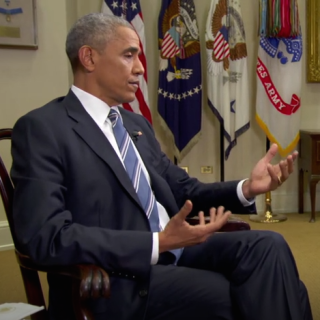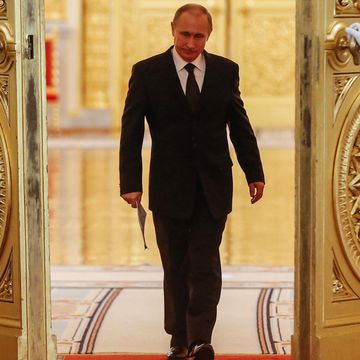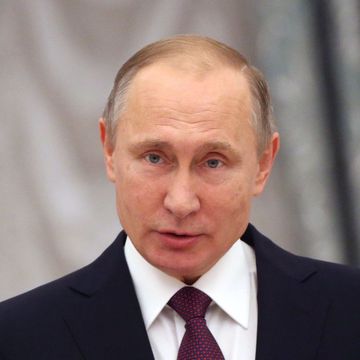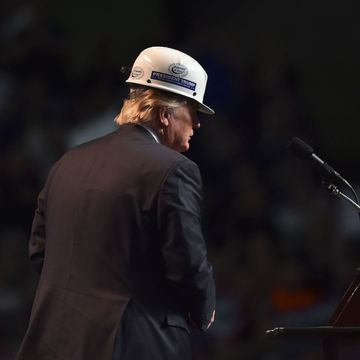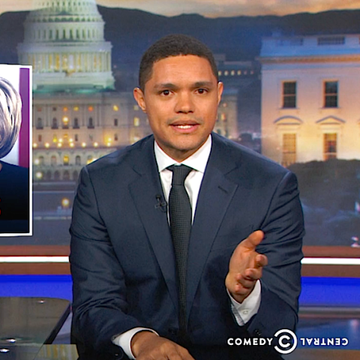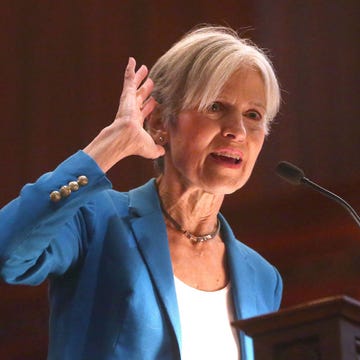If there is one thing I would like before this endless campaign grinds to its miserable–and now, apparently inevitable–end, it is to ask all of my colleagues in this business to stop pretending that they are shocked by politics and the sharp elbows and sharper practices involved therein. Mock horror is a calamitous pretense on which to base your coverage of anything, let alone a vital presidential election that has been dragged onto rancid ground because one of our two major political parties nominated a vulgar talking yam.
Exhibit A: the latest scooplet from The Intercept, in which we discover that the campaign of Hillary Rodham Clinton literally wined and dined some influential political journalists–which, by the way, has been a practice of political campaigns ever since influential political journalists were setting type by hand and publishing their work by pasting it in the windows of their print shops.
As these internal documents demonstrate, a central component of the Clinton campaign strategy is ensuring that journalists they believe are favorable to Clinton are tasked to report the stories the campaign wants circulated. At times, Clinton's campaign staff not only internally drafted the stories they wanted published but even specified what should be quoted "on background" and what should be described as "on the record." One January 2015 strategy document—designed to plant stories on Clinton's decision-making process about whether to run for president—singled out reporter Maggie Haberman, then of Politico, now covering the election for The New York Times, as a "friendly journalist" who has "teed up" stories for them in the past and "never disappointed" them.
I may never recover.
To me, anyway, this story's essential news value resides purely in its sourcing–leaked documents hacked from the DNC–because that still sounds exotic and carries with it an air of international mystery. And even that is presented curiously. The Intercept continues:
The emails were provided to The Intercept by the source identifying himself as Guccifer 2.0, who was reportedly responsible for prior significant hacks, including one that targeted the Democratic National Committee and resulted in the resignations of its top four officials. On Friday, Obama administration officials claimed that Russia's "senior-most officials" were responsible for that hack and others, although they provided no evidence for that assertion.
Both ends of that paragraph are strange and very vague. The source "identifies himself" as someone whose previous hacks have had a tangible effect on the campaign. This, apparently, gives the revelation more credibility than the flat statement from the administration, although there's no more (or less) substance to the sourcing of the report than there is to the administration's response. The earth-shaking revelation, of course, is that the Clinton campaign is trying to buy favorable coverage by courting what it perceives to be the influential members of the elite political press. The implication, which is both foul and unproven, is that it worked.
That strategy document plotted how Clinton aides could induce Haberman to write a story on the thoroughness and profound introspection involved in Clinton's decision-making process. The following month, when she was at the Times, Haberman published two stories on Clinton's vetting process; in this instance, Haberman's stories were more sophisticated, nuanced, and even somewhat more critical than what the Clinton memo envisioned. But they nonetheless accomplished the goal Clinton campaign aides wanted to fulfill of casting the appearance of transparency on Clinton's vetting process in a way that made clear she was moving carefully but inexorably toward a presidential run.
In other words, Haberman pretty much informed her readers accurately what was going on in the Clinton campaign, but that is given a sinister edge because of the way the information was obtained, and because it can be made to conform to a narrative of artificial mystery. This is some cheap work. For the record, I would have RSVP'd in the negative, were I invited, which I was not. That doesn't make me better or worse than the people who may have accepted the invitation.
And then there were the people in the audience last night. In the first place, I don't believe all of them were "undecided" in any real sense, not at this point and not in this campaign. Second, the effort to turn several of them into folk heroes is flatly embarrassing. For example, Ken Bone, the guy who asked the question about energy policy, is in the beginning of his 15 minutes of fame. Per The New York Times:
Judging by comments on social media, many of those who tuned in found Mr. Bone to be the most diverting thing about the debate. They were delighted with his sweater, and images of him snapping pictures on a disposable camera shortly after the event. Journalists and commentators flooded Twitter with memes, depicting Mr. Bone crossing the Delaware with George Washington, as a rapper or basis for the perfect Halloween costume. A YouTube song celebrated him ("Oh Kenneth Bone, you make us all feel less alone in this bizzarro phantom zone in the darkest of timelines"), while others cautioned that he might wear out his welcome, like an election edition of Chewbacca Mom.
To me, this evinces a more fundamentally dangerous corruption in the political media than anything that might have emerged by some champagne party arranged in Brooklyn. This trivializes the import of Bone's question, which happens to be the closest the candidates have come to talking about the climate crisis in any of the three debates so far.
"What steps will your energy policy take to meet our energy needs while at the same time remaining environmentally friendly and minimizing job layoffs?"
The answer is that you really can't. To do what we need to do to avert an onrushing climate catastrophe, there is very little middle ground any more between environmental friendliness and job loss. Diversion is the last thing we need.
And as for the last question–"Say something nice about the other person"–not much more needs to be said beyond the fact that it should have come with a juice box for everyone in the audience.
This is a presidential campaign with some uniquely brutal elements to it, but it still is a political campaign. One candidate is immolating himself in a vivid fashion. That has put everything into a garish light. But to pretend to be shocked by rough campaign tactics, or to pretend to be made whole again by the wisdom of the common folk, is to betray the history of the politics in this country. In 2016, only one candidate and one campaign is uniquely bizarre. The rest is business as usual, in accelerated time.
Click here to respond to this post on the official Esquire Politics Facebook page.

Charles P Pierce is the author of four books, most recently Idiot America, and has been a working journalist since 1976. He lives near Boston and has three children.
